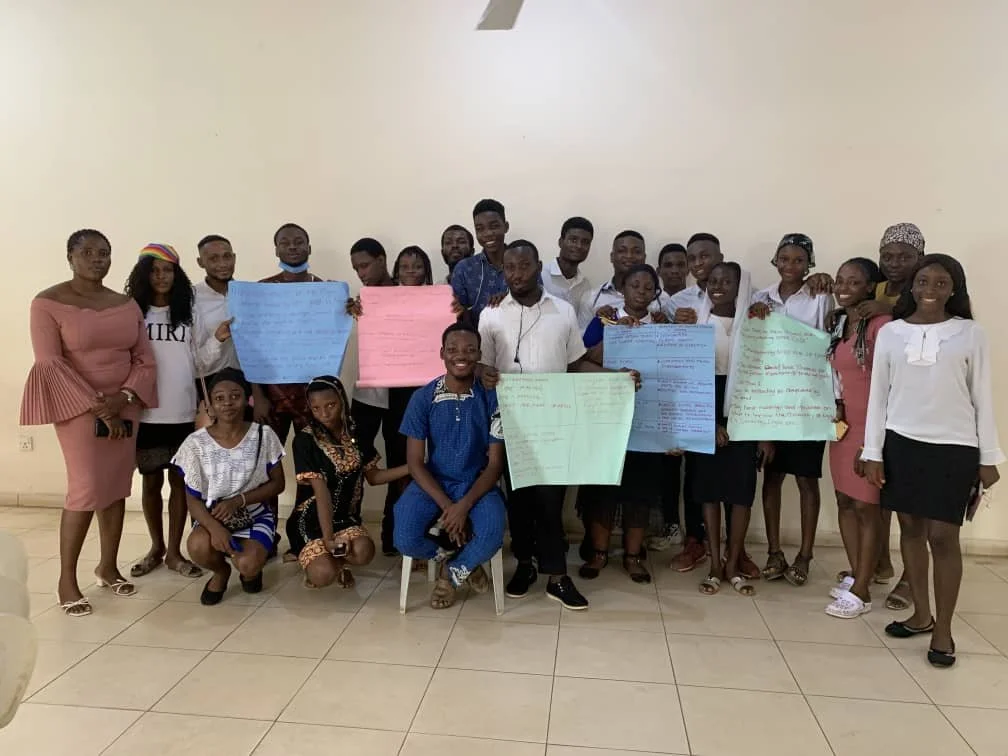Youth inclusiveness should be the top priority for improving democracy
By Lilian Efobi and Jude Uwagu
President Franklin Roosevelt once said, “We cannot always build the future for our youths, but we can build our youths for the future.”
The precarious situation of some democracies these days call for serious sober reflection on the way forward. Actors and perpetrators of the wheel of progress or ills in our nations keep getting enshrined in ambiguity. Many a time, young people do not even know who or where to either direct their anger towards or cast aspersions.
In the face of these democratic challenges, one thing that remains clear is, it is increasingly difficult for any government to ignore the youths who are assets to their nations. We argue that there is a need for deep partnership between young people and government. There is also need for the stakeholders involved to come to a roundtable discussion with the aim of strategizing the way forward for the young people. To this end, youth empowerment and development has become a formidable imperative to proffering solution to the problems at hand. Government must provide a viable environment for business ideas to be conceptualized, planned, implemented, and nurtured by young people. Indeed, financially independent youths can contribute to the political, economic, and social development of their nation.
Also, as young people, we crave a good and fair judicial system where the human rights of every citizen stand tall. A country where the law enforcement agencies are always at the disposal when needed. A country where transparency, accountability and good governance is the order of the day.
If we really need young people to be the future of tomorrow, then we must prepare the way for them and allow them to nurture their dreams, goals, vision, and aspirations. Hence, youth inclusiveness should be our TOP priority. Furthermore, young people should be allowed to participate and contest for positions without being bullied by the older folks. There should be a safe place where their opinions are heard.
The deluge of unemployed youths globally can be traced to bad governance and lack of planning for the exploding population. Many years of unemployment has led to frustration and low self-esteem, robbing the youths of the confidence they need to seek employment or get fresh ideas and be self-employed. As a result, many youths find themselves being lured into undesirable behaviours and nefarious activities, like kidnapping, cyberfraud, prostitution, human trafficking, and the likes to survive. In addition, many have opted to migrate to foreign lands by taking the dangerous trans Sahara Desert route, where they survive to meet their waterloo. Furthermore, an active and engaged youth can be a source of government innovation and improved service. By encouraging youth to participate in open government initiatives, governments can create positive impact on both a personal level and for the overall development of societies and economies.
For instance, governments can encourage the development of new, innovative industries and initiatives whilst young people can provide governments with fresh ideas and approaches and ensure that policy outcomes are responsive to the concerns of young people.
More so, when young people are empowered through education and constantly involved at the grassroots level, there is a great probability of them to transform the system and drive institutional change in the nation. It should be noted that young people are no longer contented to merely receive information from official authorities, media outlets and opinion leaders but increasingly expect to play a role in producing or sharing information as one of the ways they get to participate.
At the recently concluded COP26, 2021, we noticed how young people lend their voices to the challenges of climate change and call out world leaders to act before things get out of hand. It is no longer business as usual for treating young people as lacking the necessary experience, knowledge, or seriousness, it is counterproductive and unlikely to produce the desired outcomes.
Governments need to involve young people. And for young people: you do not have to engage in grand, heroic actions to participate in the process of change. Small creative informal acts, when multiplied by millions of people, can transform the world, and give your voice an amplitude. At the end of the day, it is youth participation that can change the system no matter how bad or corrupt it is and youth alone that can create the platform for other youths coming after you.

